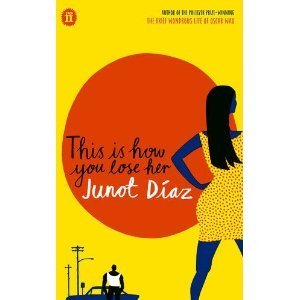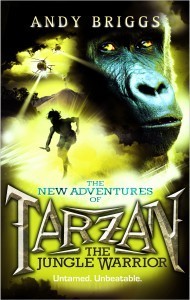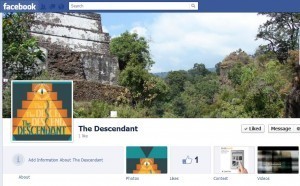M.G. Harris's Blog, page 3
December 19, 2012
Five to Doomsday – Day 2: Interview with a time-traveller’s friends
Continuing the series of posts running down to the day after the Mayan apocalypse (because that’s how optimistic I am that we’ll live to see it) – it’s time for Tyler and Ixchel to take your questions.
IXCHEL
 Do people often have trouble pronouncing your name? (from Tasmina Khanom)
Do people often have trouble pronouncing your name? (from Tasmina Khanom)Yes! Also Josh did it, at first. People from Anglo- backgrounds tend to call me Icks-shel. When I first met Josh he had a pretty strong British accent speaking Spanish. It’s better (much) now that he’s been living in Ek Naab, although people always want to practice their English with him so often times they don’t talk to him in Spanish.
Do you still wanna leave? Or do you love Josh enough to stay? (from Kaelyn Cook)
I still want to leave! But with Josh – of course! We’ve both been offered a place from next October at Oxford University, if we get the points we need in our exams next summer. Josh got accepted at Aquinas College (obviously he was going to apply to his father’s college) and I was accepted at Lady Margaret Hall. We’re also applying to Princeton and Harvard. One way or another, Kaelyn, I’m getting out of Ek Naab! Those couple of months I spent waitressing in Veracruz were tough but I really enjoyed the freedom to just hang out in a normal place.
What do you want to become when you grow up, since you study all those subjects? (from Jeremy Mallia)
I want to keep going on the ancient languages thing. I’d like to learn a few more, and then get into a doctorate program. I’ve been looking at Linear A, and a couple of other languages that haven’t yet been deciphered. But I guess what I really want, long term, is to find about more about the Erinsi. Maybe we can find some more remains and find out more about them? It’s such a shame that we had so little time with Ninbanda, But there are hours and hours of recording the NRO made of her talking about the Erinsi civilisation. So – that’s the answer: I want to be the world expert on the Erinsi.
What do you find most complex about Josh? (from Henry Deferrars)
Ha – I have to say, my first reaction was to laugh at this! He’s not that complex. Is he? I guess I find his musical side the most interesting thing about him because it’s something I didn’t see much of for a long time. But the more I got to know him the more I realised that music is what he really loves. He did so many things when he was a little boy, and I think it took him a long time to work out what he enjoys most. I mean, he’s so good with the capoeira and the pilot stuff. So I guess that’s it – when we first got together he was all running around and wanting to be fighting and riding motorbikes and then flying the Muwan. Yet deep down he was just wanting to be this boy with his guitar, writing songs.I think he learned how to do the other stuff just because he’s a Bakab, and he knew he needs to be strong and able to defend himself, etc.
Have you ever watched Toy Story 2, like Josh once suggested? And if so – what do you think of it? and have you watched any other Disney films? (from Chloe Smith)
Yes, we watched it together when he was in Ek Naab for that first Christmas in 2010. It’s amazing! But actually I like Toy Story 3 even better. It’s not quite such a fun story as the second movie, but Toy Story 3 made me cry and for some reason made me think of my mother (who died when I was a little girl, and I never really played with my toys the same way after that.) Josh still thinks that the second movie is the best one. Those Toy Story movies are the best Disney films, I think. But since you asked, I have now also watched, and really love, Snow White and the Seven Dwarfs, Aladdin, The Lion King, Beauty and the Beast, Up, Alice in Wonderland. It’s too bad I didn’t watch those when I was a little girl!
Is there any chance of you and Josh being together? (from Gabriel Spence)
I guess you’re asking if we’re going to stay together?  I Hope so! I kind of got used to having the boy around. OK, I really like Josh a LOT. And now that I’m pretty sure he’s not Arcadio, well, that makes me feel a lot better.
I Hope so! I kind of got used to having the boy around. OK, I really like Josh a LOT. And now that I’m pretty sure he’s not Arcadio, well, that makes me feel a lot better.
Did you know all this was going to happen? (from Cory Richards)
Did I? No! How could I? There were times when I was terrified that one day Montoyo would come to me and say that Josh had gone off on some crazy mission and that he wasn’t coming back. You can’t imagine what his mother went through each time she knew he was away doing something risky. That’s actually why Josh didn’t want to tell her, most of the time. So you can guess how relieved I am that things seem to have settled down!
Thank you for your questions! Winner of the Best Question in this round is Henry Deferrars.
TYLER

Do you still pursue
Capoeira? (from Henry Deferrars)
Totally! It’s like, my main thing. I want to be a Mestre (Capoeira Master) some day soon. I’m going to help set up the new school that our Mestre is starting in South Africa. And in my gap year I’m going to Salvador in Brazil for five months to work on a local community project, and also be studying capoeira. That should get me my red belt (the first belt where you are a Master). I’ve already been teaching kids to play capoeira, so I’ll keep doing that and keep going!
Do you wish you had the ability to go back or forward in time like Josh and visit an alternate reality? (from Jeremy Mallia)
Between you and me, I have a hard time believing that Josh actually did that stuff. OK I guess there’s proof – how could he have got out of that pharmaceutical company in Switzerland and how could he have gone to those other realities and all… But I can’t bring myself to believe it. Josh told me all about other-Tyler, too, but it’s just so unreal. To me at least. I mean like, what’s that all about? Come on. It’s properly mad. It bends my head! So would I like to try it? I dunno. It’s kind of freaky. There’s nowhere that I’d rather be than where I am right now. That’s been true my whole life. Which – I guess – means I’m a lucky boy. Hmm. I’m still thinking. But no, I wouldn’t want to risk ending up somewhere worse than here, cos here is pretty great for me.
Feel a bit of a cop-out now. 
Do you ever wish you could go back, before you got tangled up with Josh? (from Kaelyn Cook)
No way! Some of the time it was mental and scary and I’m not gonna lie to you, getting shot in the hip was blatantly the worst thing that has ever happened to me. If you’d asked me within six months of that happening I’d have said yeah, I wish I’d not bothered to go round to his house that day. But now that I think back, some of it was a laugh. Like when we dressed up like Batman and Robin to sneak into that party, and that nonce Simon Madison was there dressed like Batman, too. Or the time my and Ollie saved Josh from drowning in the Caribbean Sea, after Madison abducted him in Chetumal. Good times, man.
Thank you for your questions! Winner of the Best Question in this round is Kaelyn Cook.
N.B. Beady-eyed fans of a certain TV show will have spotted the reference to a certain TV show’s episode in the title. A free signed book if you can tell me what the reference is, with a full explanation about why it is relevant!
December 18, 2012
Five To Doomsday – Day 1: Interview with a time-traveller
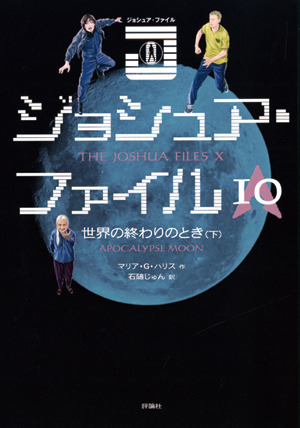
Cover of Apocalypse Moon in Japan
Through the magic of tinternet, we’ve managed to get a message to Josh Garcia in Ek Naab. (I posted a comment on his blog, is how. If you haven’t found Josh’s new blog yet, take a look: myinvisiblecity.com)
The prize for BEST QUESTION goes to Tobias Nottingham, who will be receiving a rare signed first edition of any Joshua book. THANKS to everyone who sent a question!
If you had the chance to go to another alternate reality, what would it be like and why? (From Tobias Nottingham)
Hi Tobias. Well you know what? I’ve been to a couple of alternate realities already. I went to a pretty darn horrible alternate future, in which the Sect of Huracan had won. To be frank, I still have nightmares about that. But there was one alternate reality that I can’t get out of my head. There’d been a nuclear war and some really nightmarish stuff in the 1960s, (The Cuban Missile Crisis didn’t turn out so well in that reality.) And to be honest, quite a lot of the world was basically wiped out.
But there was a whole different attitude there. Nuclear weapons has been completely dismantled. There was no Islamic fundamentalist terrorism, no problems in the Middle East (to be fair, that’s because they’d been bombed badly, too.) The USA and Russia weren’t big powers any more. Brazil, India, Australia and China were the big superpowers. And Mexico was very chilled. It wasn’t like now. In that reality, I had all the money I could every need and my girlfriend and I could have lived pretty happily on the beach. I’m ashamed to admit it, because I shouldn’t have enjoyed a place where so many had suffered so much to make it such a peaceful world. All I can tell you is that I was happy there. Although I missed my Mum, Tyler, Benicio and Emmy.
And I’d go back there. Please don’t hate me for it.
What have you found hardest about your life? (from Henry DeFerrars)
Hmmm – I try not to look backwards too much, so right now I feel pretty good. The moon machine is up and running OK and everything should be cool for the 21st/22nd December (you wouldn’t know about it, since the media seem to have it well under wraps!). Some of the physical stuff was hard at the time. I don’t think about it much now but being shot in the leg was very not-good. But if anything niggles at me, it’s this – Tyler. He’s the real hero, if you ask me. He stood by me when I needed him and what did it get him? He’s ended up back in the Sect of Huracan’s future. And even though I know that we need that alternate reality to exist so that our reality can be the way it is, I feel bad that my best mate had to suffer - and still has to struggle in that world.
Why didn’t you go back in time to save your father? (from Andrew Lemerand)
I tried, man! I did. That was my whole plan, the main reason that I fixed the Bracelet of Itzamna. Look how that turned out – I found my dad, but he still ended up being transported to the slopes of Mount Orizaba. After that, honestly, I was too sh*t scared to try again. I kept thinking – and I still do – what else could go wrong? You think things can’t be worse but they CAN! Jeez. If I’ve learned anything with the time-travelling it is that.
If the Hurucan do take over the world what will you do and how? (from Calum Webb)
You’re right – it’s not a sure thing that the Sect still won’t find a way to bring about some kind of doomsday! I’m just hoping that we’ve done everything we can to stop the superwave. That would just have made it so much easier for the Sect. But they might not give up. One thing we’ve really got going for us is that we know the formula for hypnoticin – the Sect’s mind-control drug that only they can use. So we’re already working on a drug to block that. If the Sect tried to take over, we’d make that drug available freely, worldwide. If they found some way round that…I dunno. I guess I’d stay in Ek Naab and do what I could from here. But don’t worry. The Sect of Huracan are my sworn enemies. While I’m alive I’ll fight them. 
What if forecast is correct? What can we do to ourselves each if it really happened? Whether there is any relevance to the present situation? (from Amelia Nurkasih)
The thing forecast by the Mayans is going to be OK. It’s all under control now – finally! But if something like that really happened . . . wow. I think your only bet would be if you were one of those ‘doomsday preppers’. Have you heard about those types? Kind of like my dad (Andres Garcia) in the alternate future. He was fully prepped out. had his ‘bug-out’ plan all ready and when the time came, he was off up to the hills with the family (to the Lake District) where he’d been prepping a house with food and stuff that could last them years. (Here’s a website about a TV documentary about Doomsday Preppers.)
Thank you Josh Garcia for your answers! Be sure to let us know what you’re up to on 22nd December 2012…
N.B. Beady-eyed fans of a certain TV show will have spotted the reference to a certain TV show’s episode in the title. A free signed book if you can tell me what the reference is, with a full explanation about why it is relevant!
October 29, 2012
Support your school librarian and the Getting of Wisdom
Today, school librarians and their supporters will stage a mass lobby in support of school libraries at the Houses of Parliament. I’d hoped to go but childcare duty calls, and the child is a bit poorly to be dragged off to That London. So instead of fresh air and rallying around in London, I’m blogging in support.
In 2010, I had the honour of being invited to present the award to the School Librarian of the Year. I blogged about SLYA 2010, but today I thought I’d quote a little from the talk I gave.
I have always imagined that Paradise will be a kind of library. (Jorge Luis Borges)[image error]
One of my favourite authors, Borges, was obsessed with libraries, and in fact worked for years as a librarian. One of his best stories, The Library Of Babel, seems now to be an eerie, almost prescient vision of the World Wide Web. The Library of Babel is a potentially infinite library, in which all knowledge is believed to reside, yet disorganized labyrinthine, web-like in its inter-connectivity and ultimately, seductively distracting: a place where people became (literally) lost for ever.
If you think that the Internet could ever replace a librarian – you need to read that story! At the centre of the story is a mythical figure – the Man of the Book – the one person who knows how to navigate the labyrinth of knowledge.
It’s a shame and terrible waste when a library is nothing more than a roomful of books with no human guide. A child presented with this might almost be in the library of Babel. If they’re lucky they wind up with the right book at the right time. Actually it takes more than luck. It takes luck and persistence.
And a love of reading shouldn’t be something that’s only given to those kids who persist. It’s not just too important for learning – let’s put that to one side. Reading should be a human right.
C.S.Lewis says in the play ‘Shadowlands’ – We read to know we’re not alone.
When we suffer, no-one else can really know what’s going on in our brains. If loneliness is the bleakest aspect of life then anything that combats it – like reading – is pretty darn paramount.
Fiction is the means by which we learn about other people, places and experiences, by which we even learn to understand ourselves. A great librarian will know all about the stories that are being told, and enough about the readers to be able to point them to the right book.
And non-fiction is our gateway to knowledge and opportunity. I love a great fiction section but nothing impresses me quite so much as a good solid reference section; encylopedias, recent journals, accessible non-fiction with plenty of pictures.
I’m reminded of the words wrapped around the great dome inside the Central Library of Manchester:

Wisdom is the principal thing; therefore get wisdom; and with all thy getting, get understanding
Never forget that librarians are engaged in nothing less than an amazing task: the getting of wisdom.
School librarians are essential. It’s pretty simple, really.
August 17, 2012
Eight questions for Junot Diaz, Pulitzer Prize-winner and author of new collection “This Is How You Lose Her”
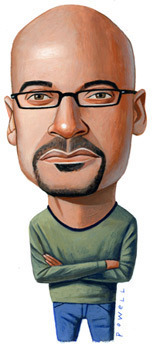
Junot Diaz (via Slate)
If you’re one of the six people who regularly read this blog you may remember me turning to goo over my discovery a coupla years back of my new favourite living author, the winner of the 2008 Pulitzer Prize, Junot Diaz. When my publisher asked me to nip down to the printers and sign 5000 books or so, I couldn’t help but be excited to see a pallet of Junot’s books all stacked up and ready to go. As well as horrified to find a few copies of Oscar Wao in the overs bin – of course, I rescued as many as I could carry.
I emailed Junot a photo of his book-stack and we’ve been in contact since. Recently, Goodreads asked me to suggest some interview questions for a forthcoming major feature on the Goodreads site, about Junot’s forthcoming collection of short stories, THIS IS HOW YOU LOSE HER.
If it’s anything like as good as Junot’s debut, DROWN then I will be one happy homegirl. (Dude’s narrative swagger is infectious. He’s got me outgunned with the metaphor and wordplay though, sin duda.)
It made me realise that I’d quite like Junot to answer all of my suggestions. Very kindly, he agreed to answer by email. So, here we go!
1. You must have been asked this one a zillion times but – here goes.
As a former sci-fi obsessive and Dungeon Master, I recognised Oscar, but Yunior, much less. As a fellow author, I have to recognise that most authors are writing something of themselves into every character. Either the person they think they really are, or the person they either would like to be, or fear they might become. Yunior and Oscar seem to me like they could be opposing aspects of your own character. Is there any truth to that? And if so, can you give us a percentage – how much Yunior, how much Oscar? Or could it be that you’ve concealed your true self within Lola?
Hard to parse oneself, especially when we’re talking about our fictional creations. Characters like Lola and Oscar took all my heart to write but does that mean they’re half of me? Hard to say. Though it’s true: what made Oscar and Yunior interesting is that they represent opposite sides of something that they’re each fascinated and tormented by. Yunior is incapable of dropping his social masks – he’s always putting on a persona, always passing for a male, always playing the role, never really letting anyone know who he is.
Throughout the novel we meet many of his various guises but we never truly meet the man himself. One cannot find love unless one drops all masks, all pretenses, unless one reveals oneself and makes oneself totally vulnerable to the person they seek to love. Love after all requires intimacy and intimacy is only possible when you expose yourself utterly. Like many boys of his time and place and upbringing Yunior wants to be able to find love but was raised to avoid vulnerability at all costs. He has many lifelike masks with which he tricks the women he’s with, so many masks in fact he has forgotten that he even has a real face. Oscar on the other hand is never anything but Oscar. He has no masks and therefor cannot adjust himself to a given social situation just to get a girl, which is what Yunior can do all the time. Oscar can play no ‘roles’
and Yunior can never show himself. They each have what the other wants and so they circle each other and this is why Yunior is drawn to Oscar. In him he can see what he’s missing though he’d never admit it openly.
But to answer your question most directly: Yunior is my alter ego and has been for a while. But Oscar is also my alter ego. I grew up with roleplaying games and comic books and scifi books and like Oscar I was tormented by apocalyptic nightmares. As for Lola she was inspired by the Dominican ex girlfriend of my dreams. The woman who completely changed my life. And that means she too is a part of me. How much–hard to say.
(Ooof, fascinating answers! Especially intrigued by the revelation about Lola.)
2. You’ve been writing Yunior for a long time now. We first see him as a nine-year old in DROWN and at the end of Oscar Wao he’s about to be forty. Now, in your latest collection This Is How You Lose Her, you’re returning to Yunior. It’s common for teen and YA authors to take their characters through a coming-of-age, I totally get the appeal of that. But we tend to leave them hopeful, on the brink of adulthood. What are the challenges and the appeal of returning to a character you’ve developed for so long and taking them through the experiences of early middle-age, which in many ways have so much less sparkle and lustre?
One trades the lustre of youth for the burden of wisdom, for the weight and power that comes from confronting oneself over a longer span of years, and in the process coming to terms with the consequences of all your choices. I mean, damn, if we’re lucky we all age. And what I’m discovering is that it takes a lot of courage to face the years once youth has faded. I never knew that when I was young. Me, I’m interested in making art about the human experience and this is one confrontation, with growing older, that clearly has never ceased to fascinate artists. And it certainly fascinates me. Doesn’t mean I’ll stop writing about young people. But as an artist one wants to be able to write productively about all the stages of life. Having insight in your work about what it means to be 44 is as important as having insight in your work about being 14.
3. Like many of your readers I am dying to read your sci-fi, post-apocalyptic novel. Is it going to be called Monstro? How is it coming along? YA readers are somewhat obsessed with this subject matter so feel free to tell us as much as you can…
Well, I grew up on the post-apocalyptic. Before this current craze I was a part of an earlier far less commented upon generation of end-of-the-worlders. We seem always to live in apocalyptic times. MONSTRO is going OK. Still much work to do. But the work at least is forging ahead. I’m working on the hero of the book. A sixteen year old girl from a destitute background who ends up battling a series of godzilla size monsters and the horrible menace behind them. (I know, this sounds like something more suitable for a comic book but hey what can I say–it’s what’s calling me now.)
(Hey – I’m not one to argue. Comic books stories are the type I’m called to tell pretty much all the time…)
4. I read in an interview somewhere that you were inspired to put aspects of a telenovela into Oscar Wao. It made me smile because I remember the moment that my agent became really excited about the plot for Invisible City. He kept reacting with this kind of meh, until I just thought, OK, well let’s throw in something to this teen thriller, action-adventure novel, that would normally belong in a telenovela. And the agent flipped over it. It certainly helped me to get a debut book deal but on the other hand, I suspect it alienated some readers because of the unexpected mix of genres. Oscar Wao is a totally genre-mixing novel, which is why I adore it. Monstro sounds like it could be the same kind of genius-mix, again. Do you think it’s an inherent part of our immigrant-identity, to produce mestizo fiction? Could you ever see yourself writing a pure genre novel?
Hard to say. Much mestizaje often leads people to dream strongly about purity. Just check the countries from which we hail where the obsession with all forms of purities, from racial to class, is overwhelming. I think I’m a hybridmonger, not only because of my upbringing and my Caribbean-ness, but also by inclination. It’s how I think. I would love to write a purely genre novel. But I also have to learn to write faster, since at this rate I’ll be lucky to finish MONSTRO before I turn 60.
(Crumbs, let’s hope not, I won’t last that long waiting!)
5. Your top three tropical music nightclub recommendations, please? My top three are La Maraka, Mexico City, Casa de La Musica Galiano, Havana, El Grande @Club Colosseum, London.
You’re so much better at this game than I am. I don’t remember the names of any of the clubs I’ve gone to. There was a spot in Bogotá that I adored but whose name escapes me. There’s of course 809 in New York City which is simply fantastic. And in the Dominican Republic R there’s El Secreto Musical where they strictly dance Cuban son and in the days of my youth was about the most fun one could have in the DR.
(I wanna go to El Secreto Musical!!!)
6. Your favourite salsa band?
I’m a huge fan of Eddie Palmieri’s work and of course Hector Lavoe. When they’re on a track or an album I’m in heaven.
(Let’s take a minute to absorb the genius of Hector…)
7. Salsa, merengue or reggaeton?
I prefer the one you left out–bachata!
(OK – we need no more proof that Junot is in fact a marshmallow – bachata is verrry smoochy and romantic…)
8. Mario Vargas Llosa or Gabriel Garcia Marquez?
That’s easy. GGM all the way. There’s something cold about Vargas Llosa that has never sat well with me. But that’s just me, clearly.
(I wouldn’t agree quite with ‘cold’, but calculated, maybe.)
Thanks so much, Junot! I’m sure you’ll be doing lots of interviews now that we’re all about to read THIS IS HOW YOU LOSE HER. Junot has promised to get a free (hopefully signed) copy of the book to one lucky reader – if you would like to enter the draw please leave a comment with the title of your favourite short story by Junot, by August 25th, and be sure to use your real name and email address so we can get that book to you.
Junot Diaz is appearing at the Edinburgh Book Festival on Saturday 18th, a ticket event, but also doing a free event in London at Foyles on 22nd August. Sadly I’ll miss both as I’ll be away in Devon *sadface*. If you haven’t yet read DROWN or THE BRIEF WONDROUS LIFE OF OSCAR WAO – I can’t recommend enough. Especially if you happen to be a comic book and sci-fi-obsessed Latin American immigrant, if that’s you then don’t miss out on the chance to meet Junot!
If you’d like to know more about Junot, you can follow his unofficial (but devoted) twitter updates @JunotDiazDaily and fan-made Junot Diaz Tumblr page.
August 14, 2012
We’re all writing fan fiction now
That Ewan Morrison has a lot to answer for. I spent yesterday morning listening to the Naked Book podcast in which he and best-selling author Barry Eisler had a giant row about self-publishing over Skype, then reading the pages of comments to Ewan’s Guardian article that prompted my own piece on NosyCrow’s website about my experience of self-publishing.
And then today Ewan wrote another article in the Graun, rather good for a broadsheet article about the niche and wonderfully weird topic of fanfic. @MrEwanMorrison and I had a Twitter conversation about it in which I mentioned an article I once drafted in 2006, entitled ‘We’re All Writing Fan Fiction Now’.
Ewan suggested I dig it out and publish now. I must not have enough displacement activities to distract me from the WIP because I agreed.
Amazingly, I was able to find the draft of my article. I read the first page and realised why I hadn’t published it in 2006. The article suggested that both Russell T Davies (at the time, the new producer of Doctor Who, at the time) and JK Rowling were, in fact, writing a kind of fan fiction.
In 2006, that might have been taken as a bad thing, so I stopped writing the article. I wasn’t yet a published author, and certainly didn’t want to annoy anyone in TV or publishing. I still don’t.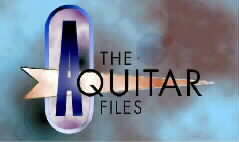
I began my writing career as a 100% fanfic author, and a co-editor of the first Blake’s 7 webzine, The Aquitar Files. So when I say that someone is basically writing fanfic, that is no bad thing.
Here’s the original article I drafted.
It’s all very well being obsessed with the characters in a TV show or a movie, but what’s to be done when the lights go dark?
No-one’s sure when written fan fiction started but as far back as the days of travelling troubadours people have been entertaining their friends with ‘what if’ stories based on well-loved characters.
Traditionally, adventure stories didn’t bother much with emotional subtext. Heroic characters, sidekicks and their shadowy counterparts in the realm of darkness would play out their roles in the fight between good and evil. How they felt about anything was left up to the imagination of the audience.
For some in the audience, however, that wasn’t good enough. This is where fan fiction really took the dive into innovation. By crossing into territory previously uncolonised by ‘canonical authors, fan fiction took on a flavour all its own. You’d never see Kirk actually fall in love, get married and have kids on ‘Star Trek’ – at least not without the famous ‘reset’ button that most long-running TV shows had at the end of arc-breaking stories. You’d definitely never see Kirk kiss Spock – ever.
When fans starting writing their own TV shows, however, some of the conceits of fan fiction began to invade the actual show. To some extent, the originators of this invasion were the creators of Star Trek – The Next Generation. Series 1 and 2 begin very much in the same vein as TOS. The first glimpse that we might see something fannish; arc-breaking and leaning heavy on the private lives of the main characters, was Data’s sexual encounter with Tasha Yar, followed by his robotic puzzlement and grief at her death.
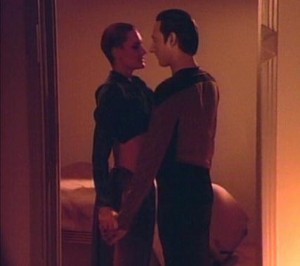
Tasha Yar seduces Data
Ever since Russell T Davies, long-time fan of Doctor Who, became the series’ new producer, a fannish element has entered the show; the emotional life of The Doctor. Fanfic often explored the loneliness of the nine-hundred year old Time Lord, but we saw nothing more than a hint of it in the TV show. We may have suspected that Sarah Jane Smith was secretly in live with the Doctor, but with Rose Tyler, it’s not mere subtext any more.
But that’s fine too. Why shouldn’t the producers of a TV show themselves enjoy a bit of playing around in the sandbox of their own creation?
The 1980s detective-comedy ‘Moonlighting’ was a ‘shippers’ paradise (shippers being fans who obsess about the potential for a romantic relationship between two characters). More than this, it appropriated another device of fan fiction; the alternative universe setting.
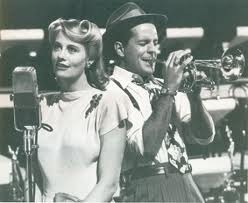
Maddie and David
By experimenting with the narrative – setting the characters in a Shakespearean or a film noir context, for example – the writers effectively were writing canonical fan fiction.
Fan fiction is the open market for ideas around a popular TV show, novel or film. Everything and anything is up for grabs. Fan writers try everything and by some Darwinian process, the ‘echt’ ideas emerge. Having been exposed, as fans of a particular genre, exactly what comprise the key emotional triggers, the most appealing ‘what ifs’, today’s generation of genre screen and novel writers are hardwired to deliver the goods.
That’s why Harry Potter broods over the loss of his parents and his feelings for Ginny, whilst E. Nesbit’s adventuring children manage to brush over any grief they might have about their absentee parents. The painful emotional backdrops were always there – Lucy, Edmund, Susan and Peter as well as the kids from Mary Norton’s wonderful ‘Bedknobs and Broomsticks’ were war evacuees. They had to be running any gamut of emotions right there. It’s just that in those days, somehow, the adventure of the story was expected to be enough; the emotional stuff was left understated.
A.S. Byatt has written that it is ‘childish adults’ who read Harry Potter. As a self-confessed ‘childish adult’ and Harry Potter reader, I’ll admit that as a group we are probably responsible for the bleeding of fan fiction-esque elements into genre fiction.
Some of us even like our fiction peppered with literary references, mythology and symbolism, but then that’s geeks for you.
Henry Jenkins, author of what’s become a textbook on genre fandom, Textual Poachers, observed that fandoms build primarily around genre creations in which there is a significant mismatch between the intended audience for the ‘product’ and the hardcore fans. For example, the Harry Potter fandom was not built by 9-12 year-olds (the target audience), but (mainly) by women in their early twenties. The fanfic then fulfils the unmet wants of the hardcore fans - who will likely have rather different proclivities.
Fan fiction isn’t new, but as audiences become wider and reach parts of the population for whom they weren’t necessarily designed, the subtext is what is exploited. If we love stories of spaceships and exploration, we can merely create our own. Why waste creative effort writing stories about characters we already know, if not to explore what the canon does not or will not: the subtext?
That’s where I stopped writing. But now that the lid has been blown on fanfic, maybe it’s time to round off my reflections from 2006.
I’m not saying that these canonically unexplored proclivities are always sexual. My own years of dabbling with fanfic were also about finding a way to exercise my writing muscles, via pastiche; Blake’s 7 stories in the style of Italo Calvino, etc. But my own fanfic was also at least 50% about the sexual relationships between the characters.
There will doubtless be protestations on the comments of his article, but I’d agree that Ewan Morrison is right that of all these subtextual fascinations, the dominant one in fanfic is sex.
If fanfic is about exploring subtext, then we really are all writing it now; published or unpublished and on screen. Sherlock, anyone? Elementary? 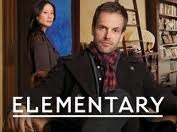 House of Silk? Professional fanfic.
House of Silk? Professional fanfic.
But then again, so is any version of Robin Hood.
Ewan uses the analogy of Ouroboros – the worm that devours its own tale. It’s perfectly apt. One fiction’s subtext becomes the next fiction’s text.
Just look at the genealogy of 50 Shades of Grey:
Part of the many-layered subtext of Buffy was that in her relationship with Angel, her innocence was threatened by his dark side. Buffy and Angel stories were about control, who has it, who gives it up. Twilight stripped away most of what was extraneous to the urban paranormal story of Buffy and focused on the innocent human girl’s relationship with the tormented paranormal creature: Bella and Edward. But the subtext of that story, right away, was about the older, controlling male and the girl’s unconscious desire to submit. So EL James, like many other Twiglet fans, stripped away all the extraneous backdrop of that fictional universe and exposed the subtext: controlling older male as ‘Dom’ to the young girl’s ‘sub’.
And because of that, now you may find yourself talking about BDSM to perfect strangers. Or your mum. Yikes.
It’s gotten so that once an author is aware of who the hardcore, active audience really is, they may even tailor the story for that audience. Easy to do if you’re entertaining adults – for example Torchwood, where apparently ‘the slash is canon’ (Thanks, @SympleSimon!). If your primary audience is children, you need to be smarter, but you can still manage it.
JK Rowling is a very cunning writer indeed and has laced her kids story with deliciously cruel, often adult subtext. If you didn’t know this, prepare to have your eyes opened by Top 6 Reasons Harry Potter Isn’t For Kids, 6 Horrifying Implications of the Harry Potter Universe and The 5 Most Depraved Sex Scenes Implied by ‘Harry Potter’.
Harry Potter invites fan fiction; a smart move by someone who is surely not blind to the benefits of letting your audience indulge a mania for your invention. Just like Twilight, HP has inspired a generation of authors who cut their teeth on fanfic. So far the most successful former HP fanfic author is Cassandra Clare, whose Mortal Instruments books explore the darker aspects of YA fantasy in a Manhattan setting.
It no longer a niche thing to write fanfic, it’s become one of the best ways to make money in publishing. Ewan suggested to me that this year’s as well as next year’s biggest publishing successes have their origins in fanfic. His article suggests that we’re moving to a situation where the original creation (if anything can be said to be original at all) earns less than the fanfic it inspired. E-publishing has enabled this to happen. Are we in danger of all new creation grinding to a halt?
Firstly I’d argue that we’re not. Every iteration shifts the debate along. Mortal Instruments, a by-product of Harry Potter fandom, is very different from The Worst Witch, an earlier version of the magical kids at boarding school story. There’s enough that is new; we rather seem to like stories that are just like the one we already enjoyed.
Secondly, I’d say that fanfics have already surpassed the earnings of their inspirational texts. All vampire stories are Dracula fanfic, but Anne Rice probably earned more than Bram Stoker and Stephanie Meyer earned more than Anne Rice. EL James looks set to earn even more than Meyer. Oh well.
Where I agree with Ewan is that because of epublishing, it is happening faster.
As a former writer of fanfic, I tend to stick to the original principles – it should be free. Like many, I was baffled by the craze for poorly-written erotica, not because I doubted that people wanted to read it, but because I was baffled that people didn’t know how to type ‘free erotic fiction’ into a search engine, and were therefore prepared to pay to download it.
There’s at least one solution – flood the market with cheap, easily available erotic fanfic.
Here’s a free idea for any tech entrepreneurs out there: design a search engine to index free erotic fanfic, scrape up the content and crunch it through something which spits the text out as mobi or epub. Charge a subscription and get subscribers via Kindle, iBookstore, Kobo. The subscription isn’t for the content but a service charge for the reformatted data, so you have no content fees.
Heck, on the Interwebs, someone is probably already building it.
Like most however, I do believe that author worth their salt ought to work on something at least slightly original. And the authors I most love and respect are some of the most original; Gabriel Garcia Marquez, Italo Calvino, Jorge Luis Borges, Haruki Murakami and Junot Diaz.
In fact, I was lucky enough to get Junot to agree to a brief interview for this blog. Junot Diaz is at the Edinburgh Book Festival on Saturday. Check back here on Friday for the interview, to find out about Oscar, about Yunior, and about Junot’s favourite salsa band.
July 19, 2012
Interview with Andy Briggs author of Tarzan – The Jungle Warrior
I’ll bet there aren’t many fans of the adventure genre who don’t owe a huge hunk of debt to one of the greatest fictional characters of all time – Tarzan. When it comes to strange exotic lands, jungle adventure, action, mystery and fighting the good fight, Tarzan has it all. So how great was it to hear that children’s author Andy Briggs was bringing us an authorised re-imagining of Edgar Rice Burrough’s classic character?
Here’s my reaction to the first book in the series, TARZAN – THE GREYSTOKE LEGACY: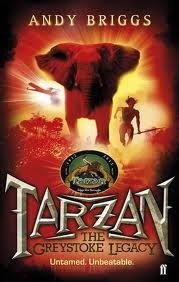
CRACKING jungle adventure with the one and only, all-time best
eco-warrior, Tarzan. It took me right back to Saturday mornings
watching Jonny Weismuller. Gritty, realistic with its portrayal of the
forces of guerrilla politics and greed in the heart of the African
jungle. Modern, yet fully authentic Tarzan.
I’m delighted to invite Andy Briggs to be interviewed here about Tarzan, as part of his blog tour for the second book: TARZAN – JUNGLE WARRIOR. Exciting things are in store for young Lord Greystoke, who’ll be taken on some modern African adventures.
Q1. Tarzan is very much a man of his time. What made you decide to modernise the character?
Tarzan was a man of his time when he first leapt onto the pages of The All-Story magazine, 100 years ago. He was an instant icon – the perfect symbol of physical perfection and a decisive hero, meting out justice while fighting for the underdog. That was a century ago. Most characters age with time and become less appropriate, but Tarzan has bucked that trend and become the more relevant now than ever before.
Edgar Rice Burroughs created the world’s first eco-warrior. Now, I know that term comes with a lot of baggage these days, but let me explain. In 1912, you and I could travel to the Dark Continent, whip a few locals and bag an elephant or two for sport and nobody would think it unusual. Of course, attitudes have changed these days and the animals and the indigenous people that Tarzan fought to protect are now, slowly, enjoying our protection. The apes that raised Tarzan were an unknown species – no doubt Burroughs based these on the legends of the man-like apes in the jungle. Mountain Gorillas were only discovered in 1902 and when Tarzan was created nobody knew anything about them. With all these elements in play, I felt there was room to expand this into a contemporary setting.
The last Tarzan movie to hit the big-screen was in 1999 and only 2 of the 26 Tarzan books Burroughs wrote are wildly available – yet he still burns brightly in popular culture. I discovered that in a room of 100 children, 99 of them knew the name Tarzan, that he was raised by the apes and lived in the jungle. But only half of them had seen a movie, and a handful had read the Disney book tie-ins. When I asked the other half of the audience how they knew Tarzan I was met with shrugs. They just do. He’s part of our collective culture. And, since he has had a quiet decade, I thought it was time to bring him back. The audience was waiting.
Q2. What are your favourite original Tarzan books?
Tarzan of the Apes was the first book, and the one that got me hooked on Tarzan. However, most people’s perceptions of Tarzan are tainted by the movies. Few people realize that, by the end of the first book, Tarzan is a civilised man about town who drives a car to rescue Jane from a forest fire in Baltimore. A far cry from the jungle warrior we all know and love.
Burroughs only got Tarzan firmly back to his roots in the jungle with the third book, The Beasts of Tarzan, which is my favourite. After that book, Burroughs primarily kept Tarzan in the jungle because that’s where the public wanted to see him.
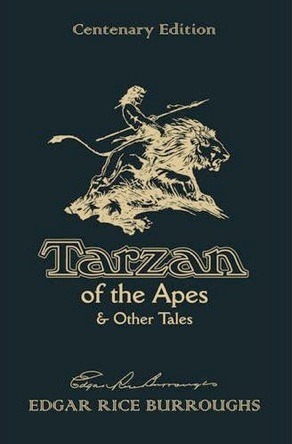 Now, Orion is publishing the first 6 Tarzan books together in a collected Centenary Edition, and I had the pleasure of writing the foreword. I can’t wait to re-read them again!
Now, Orion is publishing the first 6 Tarzan books together in a collected Centenary Edition, and I had the pleasure of writing the foreword. I can’t wait to re-read them again!
Q3. Who is your favourite screen Tarzan?
Now I am going to be a bore and have to say it is Johnny Weissmuller, only because those were the movies I used to watch at home during the summer holidays and they have stuck with me.
(I’d have to agree with Andy, for exactly the same reason!)
However, one of the more accurate portrayals of Tarzan comes from Christopher Lambert in Greystoke: The Legend of Tarzan. A great performance, and the first half of the film is probably the closest adaptation of Burroughs’ book. The second half does wonder a little off the rails though.
Q4. There can be said to be three different ‘classic’ Tarzans. There is ERB’s original character; a highly intelligent man who spoke various languages, including the language of apes. Then the movie serial Tarzan – the strong, quite simple man of few words, and finally the comicbook Tarzan, who was more like the original character from the novels. Which of these Tarzans does your 21st century character most resemble and why?
My Tarzan slices through all the previous variations. When I started writing the books I ensured they were a re-imagining of the story and characters. This is something we don’t see much of in literature, but it happens all the time in the movies – most recently with Batman and Star Trek, which had excellent reboots. I felt the key was to capture the public image of Tarzan, while keeping him grounded with Burroughs’ original intentions.
Weissmuller’s Tarzan speaks in Pidgin English, which has become something of a Tarzan trademark. However, Burroughs had a complicated arrangement for the Ape Man. Tarzan taught himself to read English using a picture book, but then was taught to speak French by D’Arnot – very confusing! I didn’t want to use either incarnation, so my Tarzan starts off speaking Pidgin English, very Weissmuller like, but slowly improves his grammar the more he speaks. My reasoning behind this was that when he meets Jane, he hasn’t spoken to another human for several years. The words are thick on his tongue and he has trouble communicating – he’s still very smart, just hamstrung by language. Over the course of the book he improves, albeit marginally. By the second book, TARZAN: THE JUNGLE WARRIOR, Tarzan’s skills improve and he eventually slowly stops referring to himself in the third person.
The movie versions of Tarzan also made him more civilised. He lived in a tree house and respected human society. I tossed all that away. Tarzan is a primal creature, raised by wild apes. He eats raw flesh and can’t stomach cook food. The world is black and white to him, he can laugh one moment and snap into a rage the next. Social structures, human laws, and manners – they’re all trappings of a world he doesn’t understand. When Jane tries to explain the concept of money to him, it’s an uphill struggle – money is a meaningless construct of our artificial world.
Q5. On translating the world of original Tarzan – to modern day. ERB’s Africa was a to a great extent fantasy version of the real Africa of the early 20th century. After all, information didn’t travel as widely and easily as it does now. How far is your novels’ Africa a fantasy-version of real Africa? It seems to me from reading the first book that you’ve attempted to ‘keep it real’, which was part of the appeal for me. However, the fantastic has a firm place in Tarzan lore, so I’d personally love to see you use that too.
When Burroughs created Tarzan he had never travelled to Africa and accurate information about the world was difficult to come by. In fact, when Tarzan of the Apes was published in The All-Story magazine, Sabor was a tiger – until somebody pointed out that there are no tigers in Africa. Burroughs’ fantasy comes from his lack of available knowledge.
My Tarzan is set in the real world, amid real situations, but I don’t feel that lessens the fantasy aspects of the stories. I am still a firm believer that, even with all our modern technology, the world still has its secrets waiting to be discovered.
In the third Tarzan book I am bringing back the lost city of Opar, which lies deep in the jungles of Africa. Our modern understanding tells us that there are no lost civilisations in Africa – yet just a year ago a new tribe was discovered in the Amazon who had never made “civilised” contact. Mountain Gorillas were only just shaking their image as a cryptozoological species when Burroughs’ wrote about his apes. There is a lot we don’t know, and plenty of things are still waiting to pass from the realm of fantasy to reality.
TARZAN: THE JUNGLE WARRIOR is out now
Thank you Andy for such a totally fascinating, informed discussion of the magnificent Tarzan!
July 8, 2012
Remembering MaryD
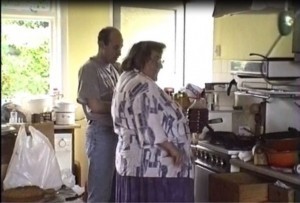
Breakfast with MaryD and Eoin 1993
A few weeks back I received some very sad news that MaryD, the mother of a close childhood friend, had died. This post is dedicated to Mary and all the memories I share with her son Eoin of our years growing up in Manchester.
Mary and Eoin moved into the street, almost exactly opposite to our house in Didsbury. Like many of the other kids in the road, they were Irish and Catholic, so we would often troop off to Mass together. Eoin and I played football with a family of three boys from Cavan who were also neighbours. Mary was immediately an influence on me, in that she was an adult who loved football and Manchester United, and also TV. In my musician household of Southern England and Mexican interlopers to Manchester, neither football or TV were thought to be fit subjects for interest. But Mary was the TV critic for a major national newspaper. Supporting Manchester United was a long family tradition – she knew all the history of the club and was a season ticket holder at Old Trafford. I was immediately drawn to the company of Eoin and his mother.
I can honestly say that I spent most of my happiest days of childhood at MaryD’s house. Watching TV with someone who actually worked in the media was an amazing thing. Mary would often bake us delicious lemon or orange buttercream Victoria sandwich cakes and we’d eat them watching Doctor Who. Mary told Eoin and I, ahead of time, that the Star Wars phenomenon was about to be overshadowed by a huge new film called ‘Close Encounters of the Third Kind’. We watched ‘Dallas’ from the very first episode, informed by Mary’s audience interaction of exclaiming at the TV comments like ‘God help you Sue Ellen, but you’re an eejit!’
They would be trips to the local book shops to buy Eoin the latest Asterix books, and on Saturday afternoons when United didn’t play at home, we’d sit upstairs and read Roy of The Rovers and 2000AD comics. Mary was always handy with unsolicited advice when we started making home movies. (Exactly like in ‘Super 8′.)
Mary’s job sometimes gave Eoin and I rare opportunities, like the time that she took us to watch the new ‘Seaside Special’ show being recorded and we went to lunch with our heroes, The Goodies and a friendly man called Bill Cotton. Later, Mary told us that Bill was in charge of BBC1. My ten-year old daughter was in awe when I recently told her that at her age, I’d met The Goodies!
When my mother went through horrible marital problems, it was Mary who cooked for her and made sure that she didn’t waste away. Both Mary and my mother suffered from quite serious depression during the early 1980s and even if we couldn’t always be enough support for our mothers, Eoin and I were able, in some sort of gruff, unexpressed teenage way to support each other. Not so much ‘hugging and learning’ as blowing off steam writing spoof rock songs and obsessing over Blake’s 7, Dallas and Manchester United.
From the age of eleven, both Eoin and I were the children of single mothers. We saw at close hand how much stress it put on our mums. I was always impressed with how positive Mary managed to be in front of me, even if it was an effort. I don’t know if she realised how much of a haven their home was for me. To be able to escape from a pressure cooker environment across the road was sometimes the main thing that made life bearable. Not that it was always a picnic at Eoin and Mary’s either – we all had our problems.
When Mary and Eoin moved back to Ireland, I was devastated. Mary had always encouraged both of us to write (stories, screenplays), so Eoin and I kept in touch. I remember those letters as pretty melancholy. If Eoin and I were angsty teens when together, we suffered even more when apart.
In 1993 my husband and I took our one-year old daughter to visit Mary and Eoin in their home in West Ireland. Eoin’s daughter was seven then. This is the only video footage I have of Mary, and it’s a typical scene – Mary cooking one of her classic Irish breakfasts. Sunday breakfast with Eoin and Mary was my favourite way to spend the day after Mass. It’s a fitting memory.
Years later, Mary embraced the web and put her acerbic journalistic skills to a new use. MaryD Loughrea became one of my favourite bloggers, putting the world of West Ireland to rights via her blog.
Today in Loughrea, friends and family of Mary’s will gather for a party to remember her. I’m there in spirit, Mary!
With thanks for all the good times, lots of love and prayers.
June 27, 2012
The self-publishing experiment #8: Results – The Amazon Kindle free promotion catapult
 As promised, about six weeks post launch of THE DESCENDANT here are some early results.
As promised, about six weeks post launch of THE DESCENDANT here are some early results.
If you remember from my last post THE SELF-PUBLISHING EXPERIMENT PART 7: PUBLICITY AND MARKETING, we (i.e. Darkwater Books) plan to deploy a number of strategies. Not all have been implemented yet.
I’ll cut to the chase. The reboot of the pre-existing Alternate Reality Game brought about 50 ‘likes’ to The Descendant facebook page, where you can read about the competition to win a Kindle Touch. Based on views at Where is Gabi Beltran? and its Youtube channel, I can see that about a hundred people were following the story, at some stage.
This enhanced content around THE DESCENDANT certainly increased the extent of THE DESCENDANT‘s Internet footprint. That is, when you type ‘the descendant’ into a search engine, results that are relevant to this book appear in the top ten results. Not easy to maintain given that in 2011 a major Hollywood movie (‘The Descendants’) and a major Malaysian, Chinese language TV drama (The Descendant, 2012) of the same title are competing for space in those results.
A big Internet footprint won’t sell books – directly. It may, however, contribute to credibility.
In summary, all these promotional activities, including me sending out emails to my mailing list, resulted in sales of around fifty ebooks/books in about four weeks.
Not too spectacular. But then, I doubt any single Joshua Files book sold much more via Amazon, during the same period. Certainly THE DESCENDANT often ranked at a higher level than any of The Joshua Files Kindle books.
I was aware, by then, that discoverability is the be-all and end-all of sales at Amazon. Other self-published authors had been reporting via their blogs that advertising and blogging, Tweeting and posting in Kindle forums etc, was having minimal effect. The only marketing tool what appeared to have any effect was the Kindle free promotion, available to authors who had enrolled in the KDP Select program.
We geared up for a two-day promotion by scheduling the following:
Pre-notifying sites like Pixel of Ink. If you fancy paying for an advert on Kindle Nation Daily, there is that too. (We didn’t)
Prepare an email for any mailing list
Schedule regular tweets. However, be aware that if your project is heavily retweeted, as THE DESCENDANT was (for which many thanks, guys!!!), some people are going to see a lot of tweets about your freebie. It may tip into spam… On the other hand, advertising gurus tell us that in these times of information overload, we need to see something twenty-odd times for it to register. One person’s spam may be another person’s vague awareness of your books’ existence.
Ask any influential contacts to retweet your freebie. I’m massively grateful to Chicklish and SFSignal for their power tweetage of THE DESCENDANT freebie. Once those guys were on board, the book really began to shoot up the charts.
Line up some kind of online news/promotion for when the free-promotion ends. I’d arranged with YA author Luisa Plaja,one of the creators of the popular Chicklish blog, to have an interview about THE DESCENDANT appear on Chicklish on the Monday after the free weekend. I’d also written a blog post for the Demention Blog, about my favourite post-apocalypse novel. That’s more of a Joshua Files tie-in, but still – on Amazon, all my books are linked.
The free weekend went pretty well! By the last six hours THE DESCENDANT on Amazon UK had shot to #1 on the Free Kindle action & adventure chart, #2 in the thriller chart and at its peak reached #14 in the overall Free Kindle chart.
Which means that for that time, and for all the time it was in the top ten (which was all of the 2nd day), THE DESCENDANT became visible to anyone browsing the top 10 of Action & Adventure and Thrillers.
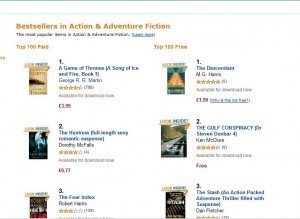
Amazon UK Action Adventure chart June 18 2012
Things didn’t go as well on Amazon US, where it only reached #633 in the overall free chart and #17 in Action & Adventure.
The numbers:
Amazon US – 580 free downloads
Amazon UK – 2118 free downloads
What’s the point of giving your book away to the only people who might have bought it? Seems counter intuitive, right?
However, my approach is that your email and Twitter contacts deserve a little something for bothering to keep in touch with an author. If they manage to grab a book they’d like to read while it is free, more power to ‘em.
Meanwhile, the Amazon free Kindle promotion acts like a catapult. It shot THE DESCENDANT from a rank of #70,000 overall to #14 (in the Free chart, but that’s a lot of visibility).
Once the promotion ends, Amazon takes around an hour to calculate its new position in the Paid Kindle chart. Amazon watchers are guessing that recent algorithms count free downloads as 1/10 the ranking value of paid downloads.
(A few months ago the Amazon free Kindle catapult had a more pronounced effect, because the free books were ranked 1:1, but those days are gone. Easy living lasts for so little nowadays…)
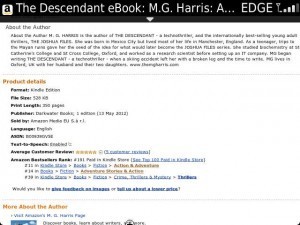
THE DESCENDANT hits #191 on Amazon UK
On the Monday after the promotion, THE DESCENDANT ranked at #3266 in the paid chart. However! Then the real sales catapult began! Now priced at 99p, the rank rose throughout the week. By Friday it had peaked at an overall rank of #191.
Just to stress how unusual that is for me, I have NEVER seen any Joshua Files book at a higher rank than 450 in the Amazon UK chart.
From #191 the book has begun a dignified slide down the chart. At the time of writing it is now #1307. The paperback version is also selling, albeit in very modest figures.
As of now, THE DESCENDANT is my best-selling book on Amazon. Selling even better than APOCALYPSE MOON – which only came out in April.
THE DESCENDANT sold 400 copies (about 380 ebooks, 20 paperbacks) in a single week. Not earth-shattering but not nothing either, and lot more than Amazon sales of The Joshua Files during the same period.
The question is – how to sustain that? This will be the next challenge.
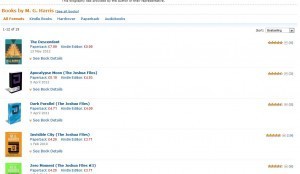
MG Harris books ranked on Amazon UK in bestselling order
May 29, 2012
The self-publishing experiment part 7: Publicity and marketing
 You really have to take your hat off to some of the work done by successfully self-published authors, who’ve managed to sell bazillions (well, tens of thousands or more) of ebooks. For a comprehensive list of what’s possible, take a look at Jenny Blake’s spreadsheet for the self-published.
You really have to take your hat off to some of the work done by successfully self-published authors, who’ve managed to sell bazillions (well, tens of thousands or more) of ebooks. For a comprehensive list of what’s possible, take a look at Jenny Blake’s spreadsheet for the self-published.
It’s important to remember here that you aren’t a traditional publisher, so you shouldn’t waste energy trying to behave like one. Trade (traditional) publishers mainly operate via business-to-business (B2B) marketing. That is, they both sell/market to the trade.
They also engage in a small amount of business-to-consumer (B2C) marketing.
The trade (i.e. bookshops) relies on the fact that the publisher will be doing some or all of the work to shift a book; in fact this is an important factor in how heavily a book will be purchased and how prominently a book will be displayed by a bookstore. Big advertising campaign? Hello, truckload of books to display front of house, face out and discount promotion! No consumer marketing at all? We’ll take one copy, please. Spine-out only.
Hence all the fuss you see about new books in The Bookseller, Publishers Weekly and their ilk, is aimed at the trade.
As a self-published author, you don’t need to worry about any of that. You need to go directly to the consumer – your reader.
Indeed, in the digital world it is being suggested that traditional publishers too need to shift to a mainly B2C model.
Instead of telling you what you can do (I refer, again, to the excellent spreadsheet of book marketing), I’m just going to tell you what I’m doing.
Publicity – I’ll be emailing my list of Joshua Files readers with information about the new book – a techno-thriller aimed at older readers and set in the fictional world of THE JOSHUA FILES. (click on the logo above if you’d like to sign up!)
Introducing THE DESCENDANT on Prezi
Alternate Reality Game - THE DESCENDANT - was the basis of an Alternate Reality Game which Richard Howse, my agent Peter Cox and I developed for the launch of ICE SHOCK. There are about a dozen tie-in websites scattered across the Internet. In this ARG, a third story unfolds, one that bridges the experience of Josh Garcia just before ICE SHOCK and of characters in THE DESCENDANT. Buried somewhere in all of this is a new code I’ve developed especially for this publicity campaign…and the winner of the competition to crack the code gets the grand prize – a Kindle!
The Descendant facebook page
Facebook – A dedicated page at fb.com/thedescendant will serve as the focus for discussion and news about the book and the ARG. Over a month I’ll post a walk-through of the ARG so that casual ‘players’ can drop in on the story without having to make the intuitive leaps by themselves. The first clue is available in the book itself…
A book trailer for THE DESCENDANT. Who knows if they’re important but I enjoy making them very much, and also use them in author events. More content for the facebook page and my website!
Press release – apparently Monday morning 7.30-8am is the best time to do a press release. That’s when journos are looking for material. Be sure that your book is listed as IN STOCK on Amazon, etc. Worst times are Thursday afternoon and Friday. Here’s the press release we wrote: Best-selling author self-publishes new technothriller with competition to win a Kindle Touch
Optimize for SEO and submit to free press release services such as PRLog, 1888PressRelease and freepressrelease.com. Also to your own press contacts if you have them.
Advertising – there’s a tiny budget to try this out, either on Goodreads or a popular book blog via Blogads.
Giveaways – I’ll probably try this via Goodreads.
Starshipsofa.com – this lovely sci-fi podcast like to feature 10min excerpts of authors reading from the opening of their novel. So naturally I volunteered to read from THE DESCENDANT!
Review copies – I’ve lined up a small group of readers in the book trade and media to read the book. Hopefully some of them will like it and post a happy review!
This series of blog posts about my self-publishing experiment. Well, for now, self-publishing is still a novelty for authors who’ve been successfully published by the trade. It’s vaguely newsworthy. (Enough to get GP Taylor an article in the Daily Mail when he announced his first self-published book.)
Price promotion – ebook. The RRP of the ebook will be £1.99. (That’s right – bargain!). During all promotions though, it will be 99p. (Bigger bargain!)
An important factor in marketing is to track the effect of any action. It’s not always easy. One way is to separate the actions and measure sales during each activity. I’ll probably do the advertising at a different time to the ARG. Everything else is scheduled to happen during the first month of the book’s launch.
I’ll report back in about a month!
Meanwhile, next: Things you didn’t ought to do or Easy mistakes in self-publishing – a snagging list.
May 27, 2012
The self-publishing experiment part 6: Materials and Methods

Be Methodical! SIMON FRASER/SCIENCE PHOTO LIBRARY
In scientific papers this part is written in dense type, and you don’t worry about making it easy to follow. Why? Well, even though the rules of science say that your work has to be replicable, you may not like giving away your lab secrets.
Usually with business processes, you don’t give information away to potential competitors. Yet in these early days of the self-publishing revolution, there’s a tremendous spirit of cooperation. Without the dozen of blog posts and a 99c Kindle book I’ve read about the process, I couldn’t have reached this stage.
So here, in approximate order, are all the steps we at DARKWATER BOOKS went through to bring forth our first title: our Materials&Methods. (please note the Disclaimer at the bottom of the post).
Start a limited liability company, if you want to have books printed via Lightning Source.
Find a designer and an editor and agree a contract. An email laying out the task and what you agree to pay is valid as a contract, but you may want to be more specific. Remember to ask a designer to be clear about what IP permissions he/she assigns to you for the jacket design. Ask for global permission to use the images anywhere to promote your book.
Think hard about picking a book trim size which can use crème-coloured paper and be printed to paperback, hardback and the Espresso Book Machine – it will save you extra tweakage costs and the need to upload separate exterior and interior files to LSI. (How I wish we’d done this. It’s a rookie error and I hate to see it.)
Schedule all tasks so that all interior and exterior content are finalised at least six weeks before publication. If planning to sell books in the USA (Createspace via Amazon, say) but the company you’ve created (i.e. you) has no presence there, get a tax exemption number so that 30% of your royalties don’t go to the IRS. Make an account on Createspace, Kindle Direct Publishing and Lightning Source (LSI). LSI will need administration time to process each stage of applications and paperwork.
Apply to Neilsen/Bowker for ISBN numbers – you need to print out the form and mail it to them, with the payment. Turnaround is about 10 days.
Start setting up an account on LSI as soon as you have your limited company and the ISBN of your first title. The paperwork seems more complicated but their email support is friendly, fast and efficient.
Read contracts with LSI – you’ll need to sign a separate contract for each location you want to have books printed/sold – US/Canada, UK/Europe, Australia and Espresso Book Machine.
When you have the ISBNs use an online ISBN barcode generator to make the barcode images that your designer will need if you are also having a print edition.
Once you’re registered with Neilsen you’ll be offered access to PubWeb, which also takes a few days to come through. PubWeb is the database of book data. It replicates across most retail data systems. It can take 3-4 weeks for PubWeb to input the ISBN information that you supplied. Schedule accordingly!
Make sure that Neilsen/PubWeb have the correct distributor details for your titles. Once your data is in their system, the PubWeb feed is picked up by retailers. At this point you may begin to see your title listed by online retailers as available for pre-order.
However don’t forget that you can directly input your book data to Amazon and that this, esp for self-publishers, is an important marketing opportunity. Write your jacket copy and Amazon copy etc.
If you’re not going for the KDP Select Program, you don’t need to worry about giving your ebook 90 days exclusive access in Amazon. Create an account on Smashwords or BookBaby and prepare to have epub editions created/uploaded.
The easiest way to get a file ready for Kindle is to pay Createspace to do it. Simply uploading filtered HTM pages correctly formatted from Word .doc or .docx files to KDP comes close to a good online conversion of .docx and .HTM files but the converter program still has some glitches. These may disappear soon – the online converter is pretty new. You could also try software – Calibre or Kindle Writer
Upload your ebook files to Kindle/BookBaby/Smashwords as appropriate, and interior and exterior book files to Createspace and/or Lightning Source. Pay for a print proof to be sent (strongly advised).
Check your proof carefully before you finally sign it off. Createspace have cool online digital proofing tools which are a must! Lightning Source also provide e-proofs.
BEFORE YOU GO TO PROOFING: Check that the ISBN matches across all the key fields:
On your book’s cover
On the copyright page
In your spreadsheet from Nielsen (or whatever Bowker provide)
On your PubWeb data entry
In the book details for Createspace and Lightning Source.
This step is detail work. MAKE YOURSELF MATCH THEM ALL BEFORE YOU APPROVE A PROOF!
Order some author copies and line up some people to read them.
Did you think about marketing and publicity? Whoops. You should have. That’s a whole other post. It’s not boring Materials and Methods, though, so I’ll even make it pretty.
Disclaimer: This is NOT actually a scientific paper, it isn’t even a business paper, this is just a list of the processes we went through at the neophyte publishing imprint, DARKWATER BOOKS, to bring forth our first publication, from the first M.G. Harris manuscript. No guarantees that I haven’t accidentally missed out a step, that this is a comprehensive list of everything you should or could do, or that the suppliers mentioned are the best ones or even reliable. It’s just a list of what Mr Harris and I actually have done to date. Only to be used as an informal guideline, and read every contract you sign carefully!
Next: #7 Publicity and marketing

